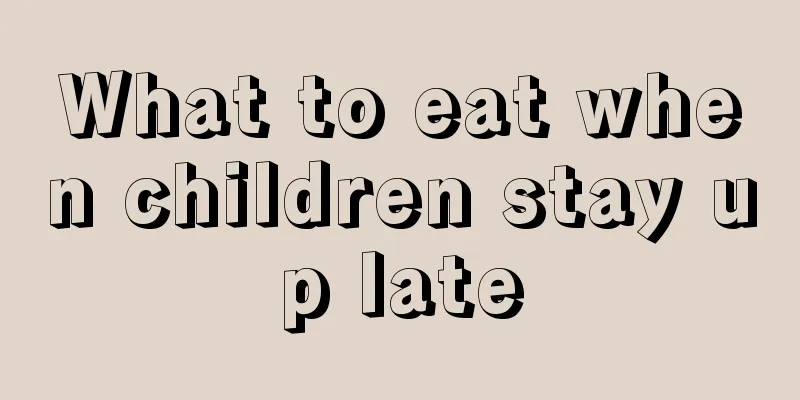17 month old baby early education

|
Basically, parents attach great importance to their baby's education. Everyone knows that habits must be cultivated from an early age and education must start from childhood. For babies aged one or two, they have a very strong learning ability and are able to absorb new knowledge. The most important thing is that babies at this age have a strong curiosity to explore the world.
1. Exercise (1) Go up and down the stairs holding the railing: Parents can use toys to lure children up and down the stairs to protect them. Start by climbing up 2 to 3 steps, then gradually move up to multiple steps. After your child can climb the stairs steadily, teach him to go down the stairs so that he can understand the concept of depth. Be sure to pay attention to safety. (2) Walking freely: Children move more on the ground. Children like ball toys the most. Parents should cooperate with their children to throw, catch, roll, kick the ball, etc., and let the children push the stroller forward, backward, and turn.
2. Cognition (1) Life imitation games: coaxing dolls to sleep, playing at doll house, and learning to cook. These games help children understand the content and meaning of the games, learn to cooperate with others and put away toys after playing. This helps them exercise their hands-on skills and social adaptability. (2) Reading and turning pages: Look at pictures and use simple language to explain. Although children may not understand much, it can enrich their language environment and attract their attention. Repeated explanations and questions can strengthen their memory and teach them to turn pages by themselves. 3. Language (1) Understand language and requests: Use language to mobilize his activities and ask the child to do things, so that he can form the concept of doing things according to instructions. Pay attention to learning and using negative language, so that children can understand concepts such as "have, don't have, want, don't want, yes, no". (2) Reciting nursery rhymes: Repeat a short nursery rhyme. At first, the child may only know a few words and cannot say a complete sentence, but he or she can gradually memorize the nursery rhyme and recite it independently.
4. Life and communication (1) Putting on a hat and taking off socks: Let the child learn to put on a hat in front of a mirror and take off socks before going to bed, or unbutton the clothes and let the child take off his or her shoes by himself or herself. This will help cultivate a sense of self-service and avoid discouraging the child's enthusiasm. (2) Life routine: Arrange children’s daily routine according to their life rhythm, and cultivate good habits of washing face in the morning, going to bed on time, and washing feet and face before going to bed. |
<<: 16-month-old baby early education
>>: 18-month-old baby early education
Recommend
Can a week and a half baby drink pure milk?
Breastfeeding is more beneficial for newborns. Ge...
What are the symptoms of red and swollen baby fingers?
What are the symptoms of red and swollen baby'...
What are the causes of dark circles under children's eyes?
We know that the physical health of children is a...
Child coughing and nasal congestion
Children's coughs react more severely than ad...
Can children's growing pains be relieved by soaking their feet more often?
Growing pains can be said to be a problem that ch...
How should children eat to strengthen their spleen and stomach?
Nowadays, many children are less and less interes...
What are the symptoms of acute gastroenteritis in infants
Infants with acute gastroenteritis need to be tre...
Why is my baby's stomach rumbling?
A child's digestive ability is very limited, ...
Can I turn on the air conditioner when my baby has a cold in summer?
Children are actually very sensitive. Sometimes, ...
Can I use an electric fan when my baby has a fever?
It is actually normal for babies to have a fever,...
Height and weight of a 2 and a half year old baby
In fact, there is a standard value for the height...
Baby's cold clear nasal discharge turns yellow
The most distressing thing for a family is when t...
What can babies eat when they have a fever? These foods work well
If your baby has a high fever, on the one hand, y...
How to quickly eliminate flatulence in children
In daily life, whether adults or children, bloati...
The best medicine for reducing phlegm in infants and young children
The baby's health is the biggest concern for ...









